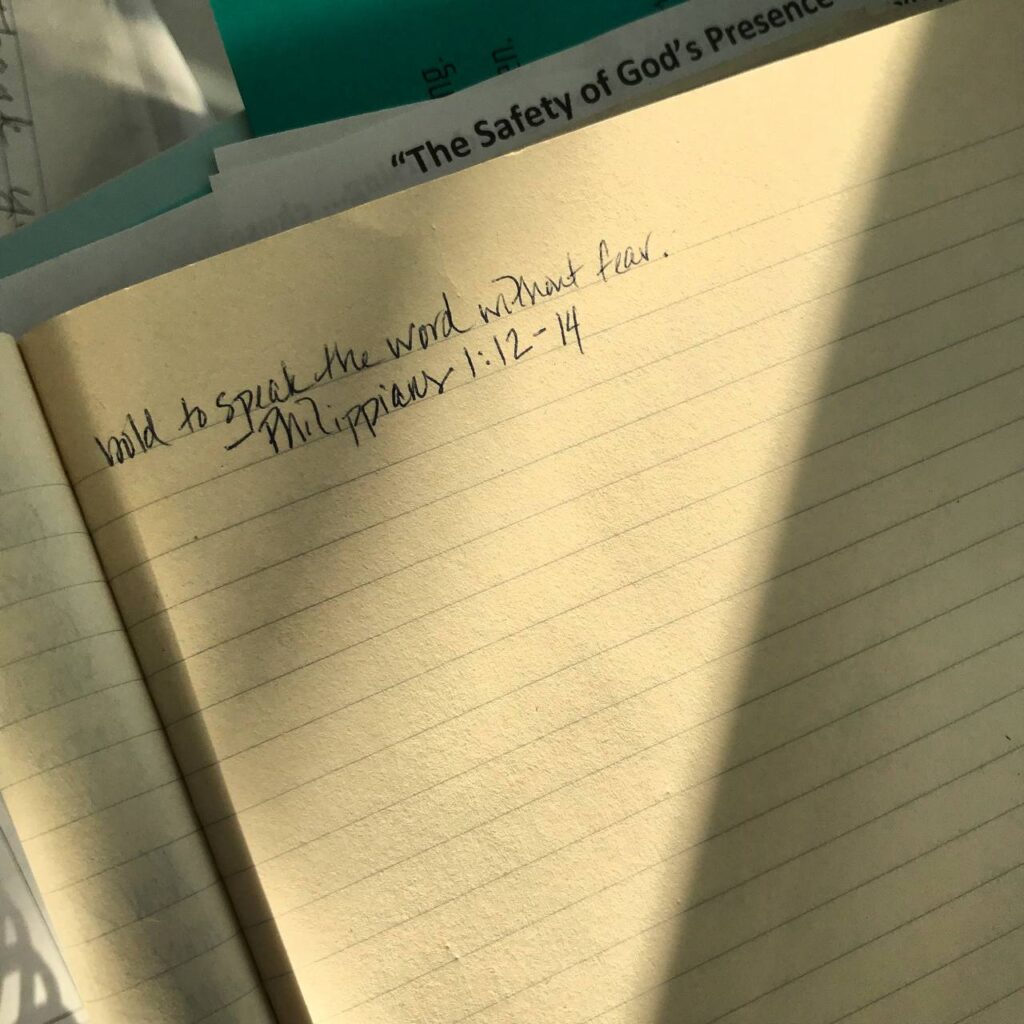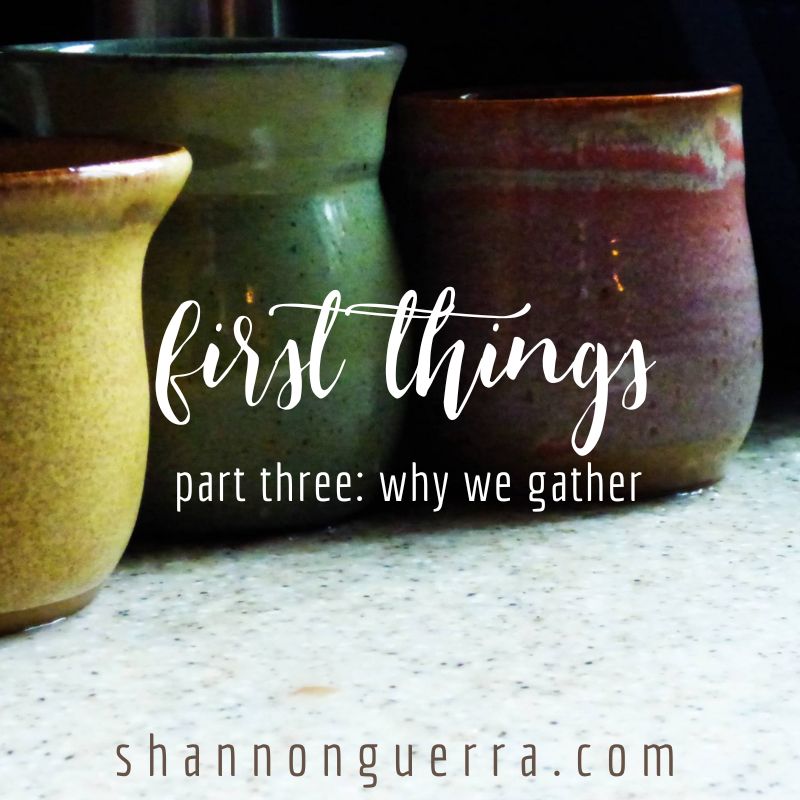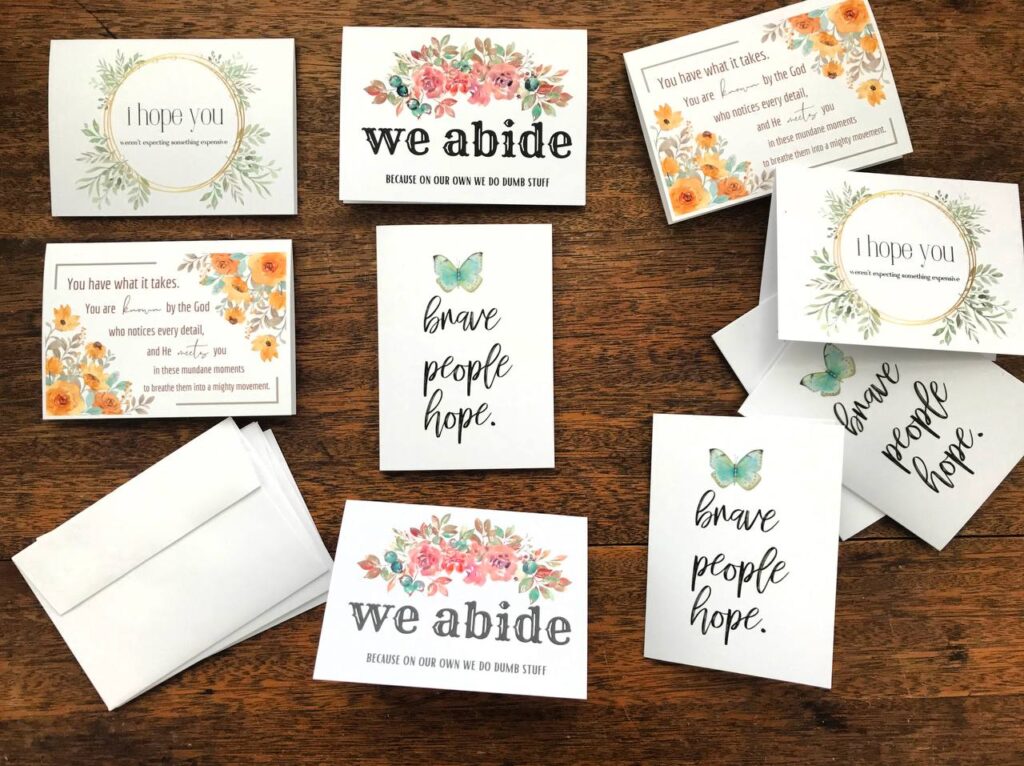It took about six months before it looked like anything was happening. Finally, the seed pit split open and the tiniest sprout emerged.
And then it got taller. And taller. It leafed out, and stretched, and the sun shone through its veins.

And then a cat ate it.
OH NO YOU DIDN’T. (Yes. Yes, she did.)
I should’ve known. This is not the first avocado tree I’ve tried to grow; the last ones survived for a few years but then we got kittens who inflicted several months of repeated attacks on them. Those kittens (who are my darlings now, but this was before they knew Jesus) climbed the avocado plants, ate their leaves, slept in the base of the pot, knocked them into the bathtub…and after so many repottings and replantings, the last remaining one’s stem finally broke in a climactic dive (er, push) off the end table.
So this time I should’ve protected it. I saw those vulnerable new leaves and should’ve covered it because I know what the elements are.
But I didn’t. I was lazy, or I forgot, or I was distracted with a million other things. I thought I could get away with it this time. And now the plant was a stub. Demolished. Months of watering and waiting made worthless.
Have you ever worked so hard and waited so long to see the fruition of your work, and then you finally start to get a glimpse of victory and accomplishment, and someone comes by and cuts it down? It doesn’t have to be literal destruction; it can be the voice of an accuser who says aloud the doubts you’re already fighting in your head. Wow, they see it, too. I must really be a failure. That wasn’t really the confirmation I was looking for.
Even worse than the discouragement is the regret that we should’ve done something differently to prevent it. We should have had better boundaries. We should’ve held our ground. We should’ve done more research, or spent more time with our kids, or forgiven faster, or paid more attention, or worked a little harder. We should’ve known better. Or worse, we did know better, and that’s why it burns so badly. Yes, there was an attacker who destroyed this, and the attacker was us.
Our thoughts grow dim and overcast. The sun is going down and we sit in the darkness, forgetting to turn the lamp on.
Do you see what happens here? We start to take too much blame. Yes, we are responsible for our part, but we are not responsible for everything else. We are not responsible for the elements. We are not responsible how other people (including children, spouses, cats…) respond to those elements. We cannot predict the future. We did know better, but we did not know everything.
And yes, we can always do better – but if we always did better, we would be perfect, and if we were perfect, would we need Jesus so badly? Probably not.
What shall we say then? Are we to continue in sin that grace may abound? By no means! How can we who died to sin still live in it?
– Romans 6:1-2
Too much regret and discouragement makes us forget that the Lord is in the business of redemption. We would never say it this way but somewhere along the line we fell for the lie that we are all powerful, therefore all outcomes are our responsibility. And that sounds like sin, like the enemy made headway in convincing us that we were God. If we are despairing in regret — even regret over our sin — we are not trusting God for redemption.
So you also must consider yourselves dead to sin and alive to God in Christ Jesus. Let not sin therefore reign in your mortal body, to make you obey its passions. Do not present your members to sin as instruments for unrighteousness, but present yourselves to God as those who have been brought from death to life, and your members to God as instruments for righteousness.
– Romans 6:11-13
We are to present ourselves to God as those who’ve been brought from death to life, because He says so. “Present” here means yield, or appear – we do not address ourselves as failures because He has made us instruments for righteousness…or in other words, weapons of justice. (Go ahead and check the Greek.) We cannot be weapons of justice if we are just to others but simultaneously unjust to ourselves, and we cannot worship God as the One worthy of all praise if we still think we’re responsible for everything that’s going wrong in our situation.
We can only make our part right, not other people’s responses and choices. We influence the outcome, but we don’t decide it.
Why do we sit here in the dark, brooding?
If we believe in God’s forgiveness for others, then we need to believe it for ourselves, too. It’s not a feeling; it’s Scripture. We know that we’ve confessed and repented, and we know that God says He is faithful to forgive. So we need to trust that a) He does what He says He does, and b) He has higher standards than we do. Because doesn’t it seem a little arrogant when people are more strict than God is, as though they are more responsible than He is?
The Lord said something to me during worship in church last week:
Your kids need to see you focused on Me, not just interceding for them. Intercession is good but it’s not a substitute for your own worship. They need to see you engaged with Me. Can you trust Me to speak to them in those moments, to work in them and protect them? Because if you feel like you’re the one who’s always responsible, you’ll take more blame for their mistakes and more credit for their victories than you should. Worshiping Me means surrendering your kids to Me.
And a light started to dawn. After years of constant hyper vigilance even during worship, I laid that residual control freakiness aside and found new freedom in looking at Him.
The Lord knows our tendency to despond in the darkness, and He gave us this passage as one of the strongest antidotes to it:
Rejoice in the Lord always; again I will say, rejoice. Let your reasonableness [gentleness] be known to everyone. The Lord is at hand; do not be anxious about anything, but in everything by prayer and supplication with thanksgiving let your requests be made known to God. And the peace of God, which surpasses all understanding, will guard your hearts and your minds in Christ Jesus.
– Philippians 4:4-7
Our regrets and anxieties over them are things we can bring to God in thankfulness, confident that He hears us and redeems us and does something about it.
And that’s a good start, but He wasn’t done yet. He knows we can be a little slow to pick up on things, so for our sanity’s sake he made Paul spell it out for us:
Finally, brothers, whatever is true, whatever is honorable, whatever is just, whatever is pure, whatever is lovely, whatever is commendable, if there is any excellence, if there is anything worthy of praise, think about these things. What you have learned and received and heard and seen in me—practice these things, and the God of peace will be with you.
– Philippians 4:8-9
We were never meant to stay in the darkness, repining about everything that has gone wrong and still might go even worse. We give far too much attention to the enemy when we do so.
To them pain and mishap present a far wider range of possibilities than gladness and enjoyment; their imagination is almost barren of the images that feed desire and hope, but is all overgrown by recollections that are a perpetual pasture to fear.
– George Eliot, from Silas Marner
Where can we find something lovely? Sometimes it’s not obvious, especially when we’re sitting in the dark. But it’s always worth searching for. If we get in the habit of thinking on the honorable and excellent things, our mind won’t continually default to should’ve and all the fear, dread, and regret when something goes wrong. We need images that feed desire and hope.
The stub of my avocado plant still had a few tiny leaves along the stem. And hey, did you know that avocado plants are supposed to be pruned after they get about six inches tall?
So this was an early pruning (cough) but hopefully, maybe, possibly not dire. What if I gave it more time? What is there to lose? It’s been six months already, so what’s another few weeks to see if something new emerges?
Can you imagine what we miss out on when we forget to look for what is true, or just, or lovely? How hopeless life would be if we took every discouragement as the finality of failure.
Can you imagine how sad sunsets would be if we didn’t realize the sun would be right back tomorrow morning?
What if we didn’t know, and we stood there in the cold and the dark, waiting for hours…and hours…and nothing. We’d keep watching where it went down but it would seem hopeless, no activity there except increasing darkness.
And then, if we waited long enough, we would realize there was light emerging behind us.
We would turn around and realize — oh joy! — there’s the sun again! We had just been facing the wrong direction, and almost gave up before the sunrise.
And now – here’s some redemption – we are listening better. We’re paying closer attention to His nudges and we’re looking for what’s lovely and true and excellent. We don’t want to miss His leading, we don’t want to blow off the Holy Spirit’s wisdom and warnings, because now we know better.
That avocado stem was just a ridiculous, ugly stick in the dirt. But I covered it with a vase and waited a couple weeks. It wasn’t dying, at least. And after a while, the leaf nearest the top did seem to be a little bigger. And then even bigger.
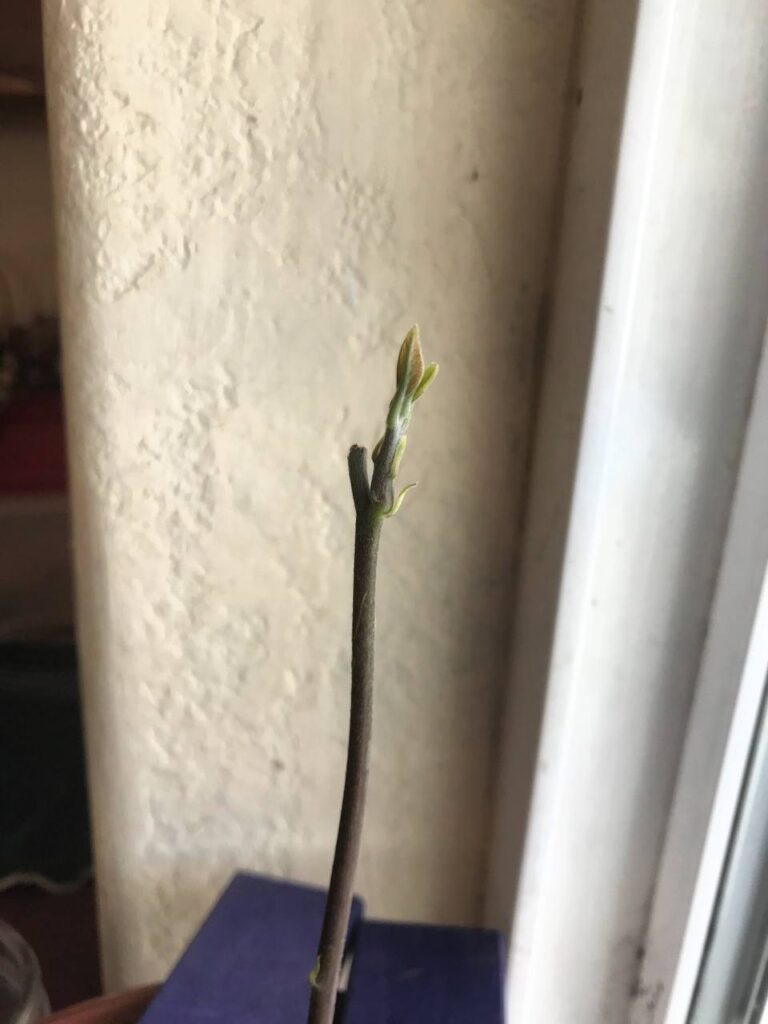
And then it looked like multiple leaves.
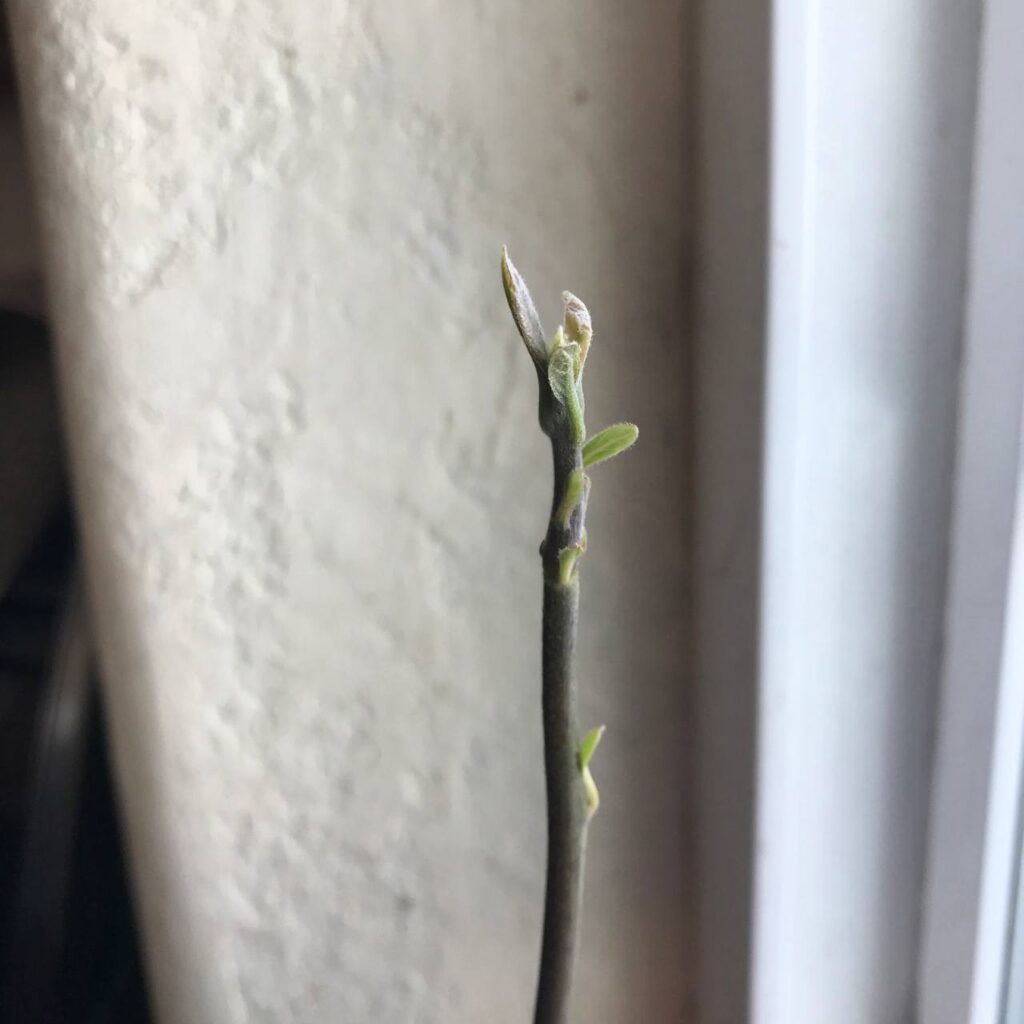
I turned the pot around to see it better.

And the leaf hadn’t just grown out, it had grown a new stem.
In sunrises and springtime God has made nature a reminder to us that light and life are ahead, and it cries out, Beloved! You can start over when all looks lost.
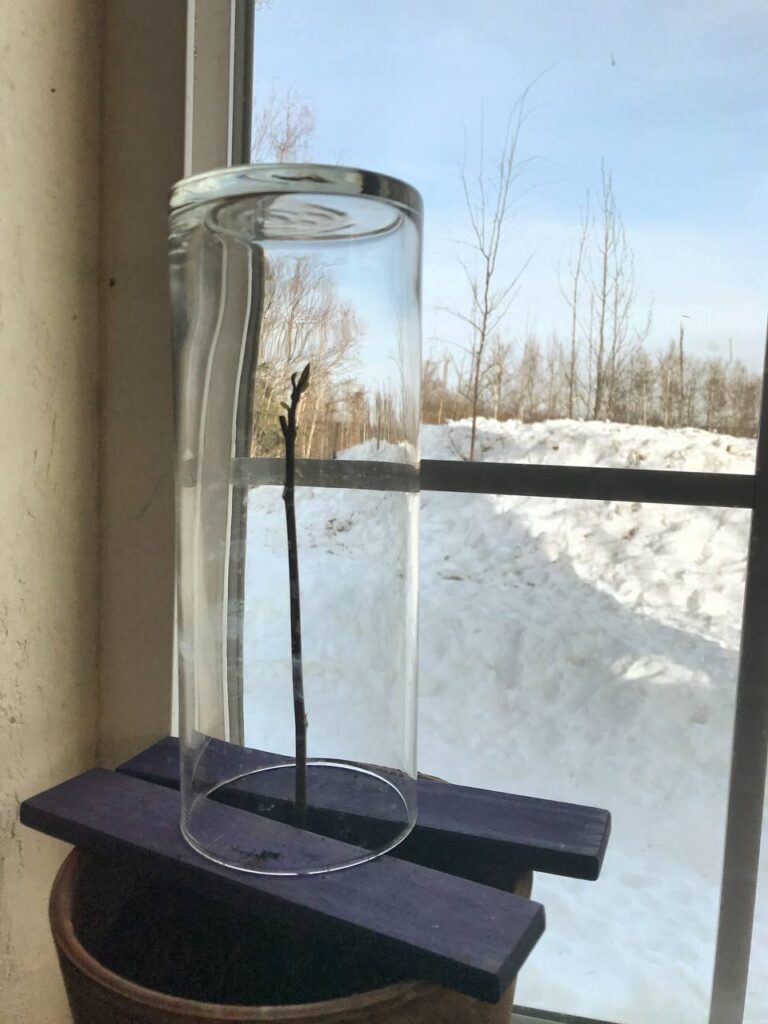
P.S. Dealing with serious discouragement? Don’t miss this post.


